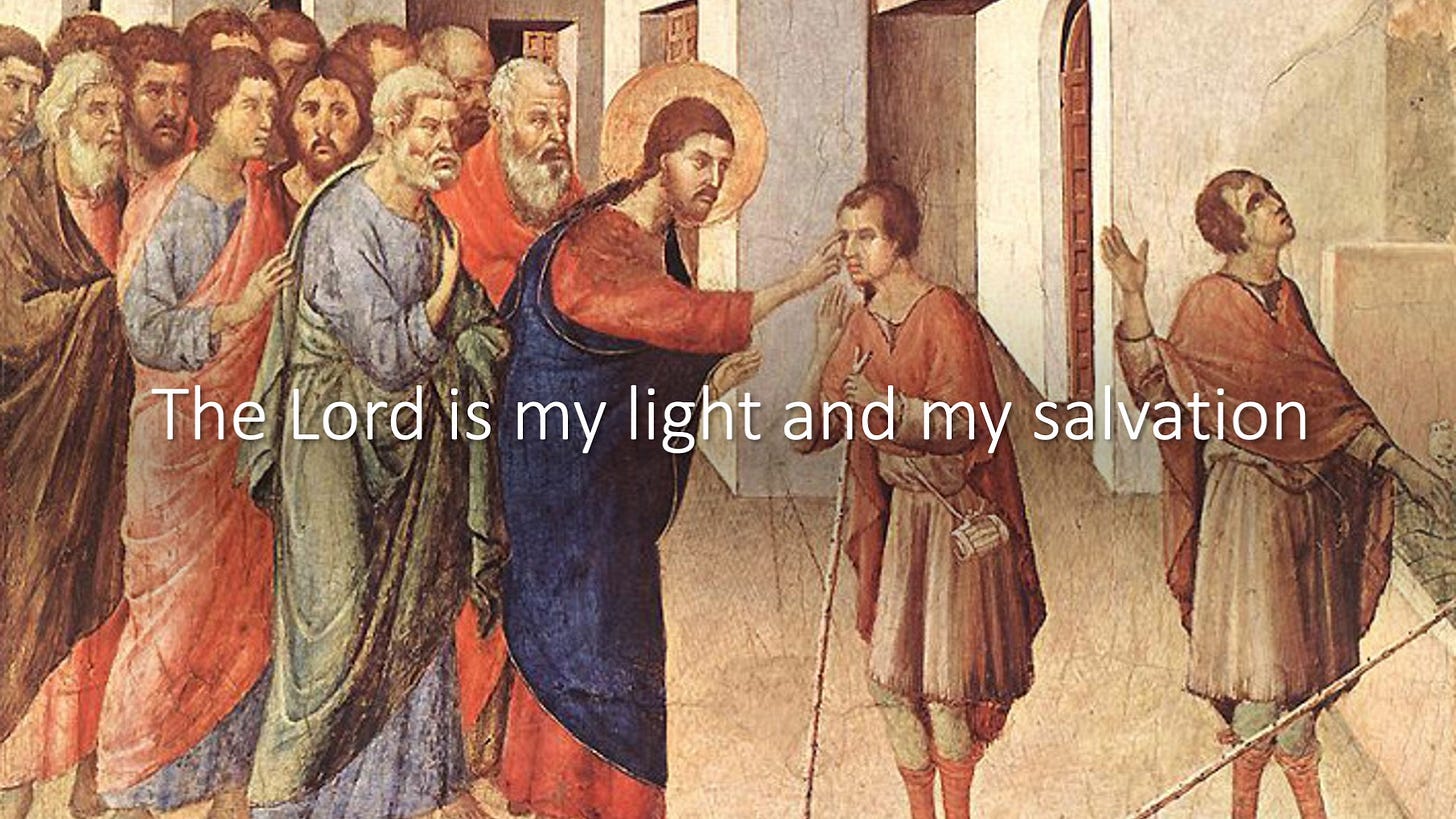The Lord is my light and my salvation
Psalm 27:1,4,13-14. December 2, 2022 - Friday, 1st Week of Advent
Psalm 27 is a confession of trust and Hillsong Church in Australia turned it into a beautiful song titled: “You are my light and salvation”. The two blind men from today’s Gospel experienced the truth of its proclamation when Jesus opened their eyes. Is Jesus also your light and salvation?
The entire psalm is divided into two parts. Verses 1-6 contain a confession of trust in God’s help and protection. The psalmist has no fear of his enemies because he places his trust in the saving power of the Lord. Verses 7-14 contain a request that God would not abandon the psalmist and leave him in the hands of his enemies (Ps 27:9, 12). The three stanzas that we use in the liturgy of the Word are taken from verses 1, 4, and 13-14.
Verse 1, “The LORD is my light and my salvation; whom shall I fear?”, offers a solution to the problem of fear and anxiety that plagues our life. We have to realise that anxieties and fears are rooted in a lack of faith. Contemporary man has taken the role of God on himself. We want to create heaven upon the earth and solve all the problems of humanity. But earth is not heaven, our societies are far from being an example of paradise, and instead of solving our problems, we have become a problem to the entire planet earth. The Anonymous Alcoholics offer this advice to those who want to get sober: we have to quit playing God. The solution to our crisis is to surrender ourselves to the Power from above. “Jesus, I trust in you” should become the motto of our life. It sums up the entire message of the Bible.
Then, the psalmist tells us about his desire. He wants “to dwell in the house of the LORD all the days of [his] life (Ps 27:4). For a pious Jew of biblical times, the temple was the centre of the world. It was the place where one could experience God’s presence. From a Christian point of view, contemplating God in his sanctuary brings to mind the Eucharist and the adoration of the Blessed Sacrament. But, the words of the psalmist remind us about the true aim of life: to enter into the heavenly sanctuary of God and to contemplate His beauty in the company of angels and saints.
The first part of the last stanza speaks about “the land of the living” (Ps 27:13). The phrase stands in opposition to the land of the dead where there is no access to God (see Ps 115:17). The psalmist trusts that God will not allow the threats of death to prevail in his life. For us, this phrase evokes the image of eternal life. The psalmist invites us to trust that with God’s help we can make it into “the land of the living” and see what “no eye has seen, and no ear has heard”, the bounty of the Lord which he prepared for those who love him (1 Cor 2:9).
In the Gospel of Mark, the blind Bartimaeus, for whom Jesus became his light and salvation followed the Lord on the way (Mark 10:52). That way led from Jericho, located 258 m below sea level, to Jerusalem, located 779 m above sea level. But, the ascent did not end there. Jesus continued to climb, first the wood of the cross and from the cross to “the land of the living”. To follow Jesus on this steep ascent one needs patience, strength, and courage. And so, the psalm ends with this encouraging advice: “be strong and let your heart take courage; wait for the LORD!” (Ps 27:14).




